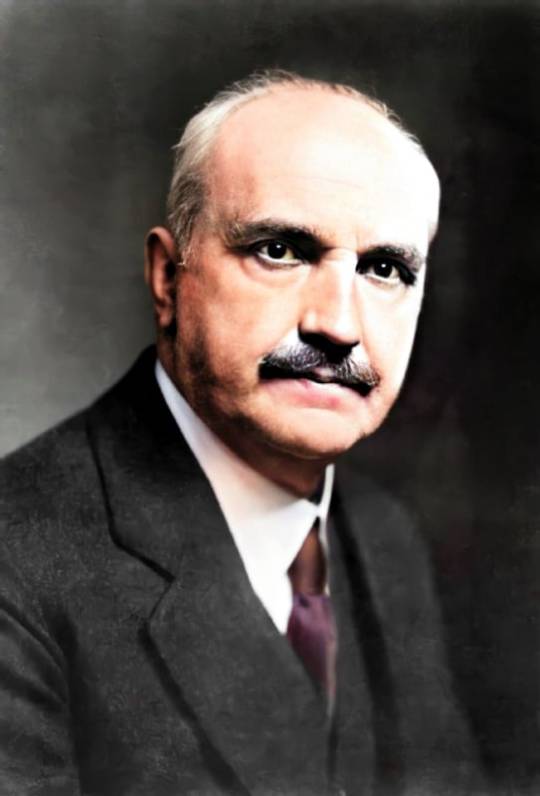#george santayana
Explore tagged Tumblr posts
Text
I've always assumed that "Those who cannot remember the past are condemned to repeat it" was some ancient aphorism said by Cicero or Confucius or one of those guys. But no, some guy named George said it in 1980.
190 notes
·
View notes
Text

I like to walk about amidst the beautiful things that adorn the world.
-- George Santayana
#beauty#sunflower#our world#george santayana#nature photography#switzerland#quote#walking#nature#sun rays
413 notes
·
View notes
Text

14 notes
·
View notes
Text

The late 1800s and early 1900s were periods of profound change, with the Industrial Revolution reshaping economies, societies, and lifestyles. Urbanization surged as people migrated from rural areas to cities in search of work and new opportunities. This shift led to the development of infrastructure, such as roads and public transportation systems, that facilitated movement and connected communities like never before. The unpaved street depicted in the photograph represents a transitional moment; while many streets were still unpaved, the burgeoning transportation networks would soon revolutionize travel.
Bicycles played a crucial role in this transformation, becoming symbols of freedom and mobility during the 19th century. With the introduction of the safety bicycle in the 1880s, cycling surged in popularity, providing individuals with an affordable means of transportation. Women, in particular, embraced cycling as it afforded them greater independence and mobility, challenging traditional gender roles in the process. The sight of people riding bikes in the photograph reflects this newfound liberation and the societal shifts that accompanied it.
Hot air balloons, meanwhile, captured the imagination of the public, representing the adventurous spirit of exploration and the quest for flight. The first successful human flight in a hot air balloon took place in 1783, and by the late 19th century, ballooning had evolved into a popular recreational activity. Events like balloon races and exhibitions drew crowds, fostering a sense of wonder about the possibilities of human flight. The presence of a hot air balloon in your photograph serves as a metaphor for the optimistic vision of the future that many people shared during this time. It signified not just technological progress but also the aspiration to transcend earthly limitations.
(Cinematic History)
+
“Those who cannot remember the past are condemned to repeat it." (George Santayana)
I've got news for Mr. Santayana: we're doomed to repeat the past no matter what. That's what it is to be alive.” ― Kurt Vonnegut
#time travel#old times#vintage#1900s#victorian#edwardian#old photos cabinet#cinematic history#Kurt Vonnegut#George Santayana#quotes
23 notes
·
View notes
Text
The world is not respectable; it is mortal, tormented, confused, deluded forever; but it is shot through with beauty, with love, with glints of courage and laughter; and in these, the spirit blooms timidly, and struggles to the light amid the thorns. George Santayana
"إن العالم ليس محترماً؛ فهو فانٍ، معذب، مشوش، مخادع إلى الأبد؛ ولكنه مليء بالجمال، والحب، وبومضات من الشجاعة والضحك؛ وفي هذه الأشياء تزدهر الروح بخجل، وتكافح من أجل النور وسط الأشواك." جورج سانتايانا

#george santayana#quotes#nice quote#اقتباس#جورج سانتايانا#اقتباسات#مما راق لي#تمبلريات#مما قرأت#تمبلر بالعربي#تمبلر#اقتباسات تمبلر#عرب تمبلر#حب#حياة#فلسفة الحياة#اقتبست لكم#صورة واقتباس
13 notes
·
View notes
Text
“Progress, far from consisting in change, depends on retentiveness (conserving). When change is absolute there remains no being to improve and no direction is set for possible improvement: and when experience is not retained, as among savages, infancy is perpetual.”
George Santayana (1863-1952) Spanish philosopher.
32 notes
·
View notes
Text

«El progreso, lejos de consistir en el cambio, depende de la retentiva. Cuando el cambio es absoluto no queda ningún ser que mejorar ni se establece ninguna dirección para una posible mejora: y cuando la experiencia no se conserva, como ocurre entre los salvajes, la infancia es perpetua. Los que no pueden recordar el pasado están condenados a repetirlo. En la primera etapa de la vida, la mente es frívola y se distrae con facilidad; no puede progresar por carecer de continuidad y persistencia. Esta es la condición propia de los niños y los bárbaros, en los cuales el instinto no ha aprendido nada de la experiencia.»
George Santayana: La vida de la razón. Editorial Nova, pág. 96. Buenos Aires, 1958.
TGO
@bocadosdefilosofia
@dias-de-la-ira-1
#santayana#george santayana#jorge santayana#la vida de la razón#fases del progreso humano#la razón en el sentido común#progreso#cambio#retentiva#dirección#conservación#experiencia#recuerdo#pasado#infancia#infancia perpetua#repetición#continuidad#persistencia#niños#bárbaros#historia#instinto#aprendizaje#filosofía contemporánea#filosofía norteamericana#filosofía española#teo gómez otero#pensamiento español
4 notes
·
View notes
Text





Those who cannot learn from history are doomed to repeat it. -George Santayana
𝙳𝚛𝚞𝚐𝚜 𝚊𝚗𝚍 𝙲𝚑𝚘𝚒𝚌𝚎𝚜 𝚋𝚢 𝚂𝚞𝚙𝚎𝚛𝚑𝚎𝚛𝚘 🎧

#uǝɯɐ ʎpoolq#george santayana#x-heesy#my art#artists on tumblr#6/2024#never stop learning#quote#quotes#qotd#quoteoftheday#quote inspiration#history#learntherulestobreaktherules#typography#iphone art#anonymous#wisdoom#wisdom#knowledge#fucking favorite#now playing#music and art#contemporaryart#newcontemporary#pop art#neo pop art
12 notes
·
View notes
Text
Grateful Remembering Fortifies Us Against Temptation
Time and time again, history shows us that people that forget to be thankful for what has done for them are much more susceptible to the sin of grumbling against God during the difficult times.
Listen to the podcast of this post by clicking on the player below, and you can also subscribe on Apple, Spotify, or Audible. https://craigtowens.com/wp-content/uploads/2024/11/grateful-remembering-fortifies-us-against-temptation.mp3 It is so much easier to complain than to compliment. We can slide into the negative conversations almost without thinking about it. In one of the last things that…

View On WordPress
#1 Corinthians#2 Timothy#Calvary Assembly of God#Exdous#forgetfulness#George Santayana#Gospel of Matthew#gratitude#Joshua#joy#manna#Numbers#Psalm#quote#sermon#thankfulness#video
3 notes
·
View notes
Text
"What religion a man shall have is a historical accident, quite as much as what language he shall speak."
George Santayana, philosopher (16th December 1863-1952)
2 notes
·
View notes
Text

#wintegirls#journal#laurie halse anderson#books#ralph waldo emerson#henry david thoreau#peter watts#alan watts#sonya sanchez#the bhagavad gita#dr seuss#george santayana#tw: ed#the tw is for the whole book#tw: self harm#the bible#the holy bible
25 notes
·
View notes
Text

A W.P.
IV Por ti doblara siempre esta campana, si fueras vivo, en mi ánimo recóndito; pues más triste careta posa el tiempo en la faz que debió ser siempre joven. Rama que cae con todos sus trofeos, pronto no cae: en flor tiende su regia testa en el polvo, y cada hoja que rinde consagró ya el cincel o ensalzó el canto. Y aunque posteridad jamás escuche el feliz nombre de quien fue tan fiel, ni crónicas señalen esta fecha, quienes te amaron, aunque somos pocos, te ven en cuanto es noble, y te levantan en su flaca virtud mil monumentos.
*
TO W.P.
IV In my deep heart these chimes would still have rung To toll your passing, had you not been dead; For time a sadder mask than death may spread Over the face that ever should be young. The bough that falls with all its trophies hung Falls not too soon, but lays its flower-crowned head Most royal in the dust, with no leaf shed Unhallowed or unchiselled or unsung. And though the after world will never hear The happy name of one so gently true, Nor chronicles write large this fatal year, Yet we who loved you, though we be but few, Keep you in whatsoe’er things are good, and rear In our weak virtues monuments to you.
George Santayana
di-versión©ochoislas
#George Santayana#literatura estadounidense#poesía conservadora#elegía#duelo#tiempo#juventud#memoria#monumento#di-versiones©ochoislas
3 notes
·
View notes
Text
"...it is easier to be impressed than to be instructed..."
~ George Santayana, Introduction, The Sense of Beauty
2 notes
·
View notes
Text

Photo by Marianne Grøndahl
* * * *
“The world is not respectable; it is mortal, tormented, confused, deluded forever; but it is shot through with beauty, with love, with glints of courage and laughter; and in these, the spirit blooms timidly, and struggles to the light amid the thorns.” –George Santayana
[Memphis Muse]
12 notes
·
View notes
Text
Aqueles que não podem lembrar o passado estão condenados a repeti-lo.
George Santayana, The Life of Reason (1905)
3 notes
·
View notes
Text
“Those who cannot remember the past are condemned to repeat it.”
George Santayana
13 notes
·
View notes